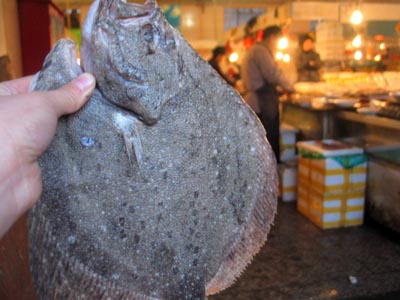Food scares spur safety measures
By Xie Chuanjiao (China Daily)Updated: 2006-11-22 07:50
The government Tuesday moved to allay public fears after a series of food-safety scares, the latest of which centred on turbot fish that was found to contain excessive amounts of carcinogens.
Many major cities including Beijing have banned the sales of turbot in markets and restaurants after Shanghai announced over the weekend that it had detected excessive residues of nitrofuran and chloromycetin in 30 samples of turbot. The fish are believed to have been shipped from Shandong Province.
Some farmers reportedly fed the fish with large quantities of medicinal supplements, which leave harmful, cancer-causing residues, to increase their disease resistance.
The Ministry of Commerce said yesterday that it was drafting a regulation to standardize food safety procedures under which markets need to keep a record of the supply chain and ban unregistered suppliers.
The Ministry of Agriculture and the State Food and Drug Administration (SFDA) have set up a team to investigate the source of contaminated turbot in Shandong. The SFDA has also ordered local offices in such areas as Jiangsu, Hebei, Zhejiang, Fujian, Guangdong, Liaoning, and Tianjin to closely monitor the situation.
In Shandong, where the annual turbot output is estimated at about 45,000 tons worth 3 billion yuan (US$375 million), an official surnamed Fu told China Daily: "We are tracing the source of the fish and will announce the result in a week."
The turbot is a flat fish typically served at banquets and upscale restaurants and is popular with both Chinese and foreigners. A serving costs between 70 yuan (US$8.75) and 150 yuan (US$18.75) per 500 grams.
Last week, more than 5,000 ducks were culled in Hebei after it was found that farmers fed them cancer-causing dye Sudan Red IV to make the egg yolk a sought-after red.
|
||
|
||
|
|

